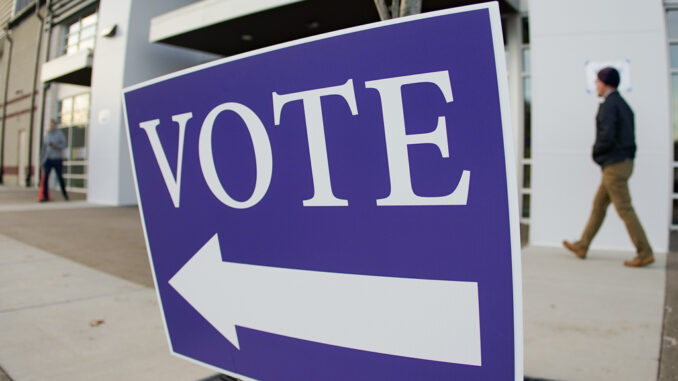
Enough doubt has been registered in the minds of millions of voters about the integrity of our electoral system that something dramatic needs to be done about it.
The question is “What exactly?”
Those on the left pooh-pooh even the mere suggestion that somehow people cheat at elections. They point to the paucity of lawsuits that have led to convictions for malefactors of voter fraud.
I can speak to the issue of why so few people bring lawsuits ― even if they know it happened.
In 2012, three UNC students told me they voted for Barack Obama in Chapel Hill and back in their home state. “You do know you all committed felonies, don’t you?” I told them. “Well, our professors told us to do it!” they said almost in unison.
“Well, don’t do it again!” I admonished them and went on my way.
Should I have reported them to the State Board of Elections?
Later that same year I was talking with a faculty member at another university who regaled me with tales of driving a van around a large city in North Carolina picking up people off random street corners to take them to the polls, again for Obama. “I felt a little bad about picking up some of those guys,” he sheepishly admitted.
“How did you know they were all registered voters?” I asked. “I didn’t” he replied. “The Obama people just told me to drop them off at an early voting location and they would take care of the rest.”
Should I have reported him to the State Board of Elections?
In 1986, Republican campaign strategist legend Lee Atwater told me we had to win the reelection campaign of Congressman Alex McMillan by more than 2% ― “just in case.”
“Just in case, ‘what?’” I asked as a neophyte participant in big-time congressional politics.
“To make sure they don’t try to steal the election,” Atwater calmly said as if he had seen it many times before.
McMillan had been elected in 1984 by a mere 321 votes out of more than 400,000 votes cast. He won in 1986 by 4,201 votes out of 250,000 votes cast ― just over the magical 2% Atwater threshold.
Since then, I have always wondered about the security of our electoral system. What I have come to realize is our electoral system is based almost entirely on trust ― everyone has to “trust” that every voter is telling the truth about who they are much like everyone “trusts” everyone else is paying the full amount of taxes they owe to the IRS.
Until and unless proof can be shown that someone committed voter fraud, as in the 2019 case against McCrae Dowless in Bladen County, there is no systematic way in our electoral system to ensure the validity of every ballot cast in any election.
I “should have” reported the students and faculty member noted above. I didn’t for the following reasons: A) Republican Mitt Romney defeated Obama in North Carolina by more than their handful of unlawful votes, so prosecuting them would not have overturned the election; and B) I didn’t want to spend thousands of dollars of my money to bring the case to the Board of Elections and neither did the Republican Party or anyone else.
Those are the primary reasons why there are not hundreds of thousands of voter fraud cases brought against people in any election in a given year ― not because it doesn’t happen.
On top of that, there are all kinds of jurisdictional and procedural hurdles to cross if anyone does legitimately want to press charges against anyone suspected of committing voter fraud. In one state after the 2020 election, Republican lawyers were told by state officials they should have filed a lawsuit before Election Day to have standing to bring the suit. They didn’t even have the data ready until after the votes were cast and tabulated. In another state, those same Republican lawyers were told they brought the suit too early.
After this election, reasonable and sober-minded Republicans and Democrats in Congress should consider one massive appropriation bill to clean up our electoral voting registration rolls nationwide. In these days of supercomputers and, now, AI, it is unconscionable to believe every person on every voting roll cannot be confirmed instantaneously as to their identity, place of residence and verified citizenship status. Cell phone data traffic is routinely used today to track people and steer them to the closest Starbucks to buy a double mocha macchiato ― surely the same techniques can be utilized to make sure every vote is legitimate and each vote cast by a legal citizen is counted.
It would be a very expensive proposition. Local county boards of elections manage voter registration lists with very limited resources. However, if Republicans in Congress want to ensure the integrity of our voting process in our democratic republic, they should seriously consider funding such an effort to match legal voters with bonafide secure national government databases and bring electoral politics into the 21st century.
Ask Elon Musk to head it up. He has landed spent rocket boosters on a floating piece of concrete in the middle of the ocean ― he should be able to figure this one out as well.


